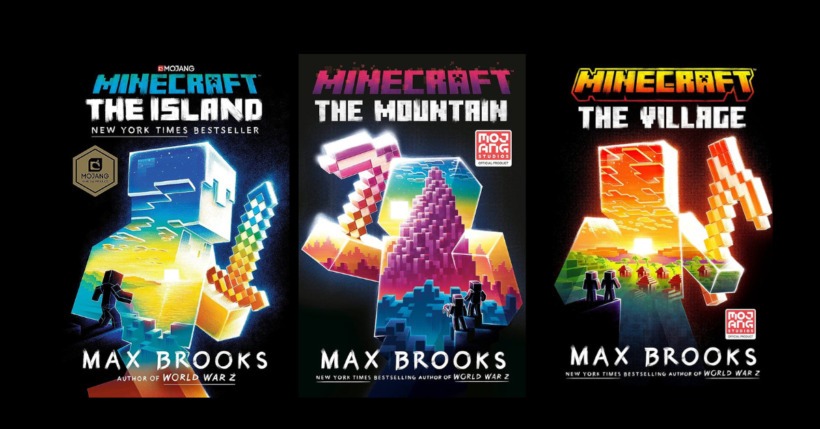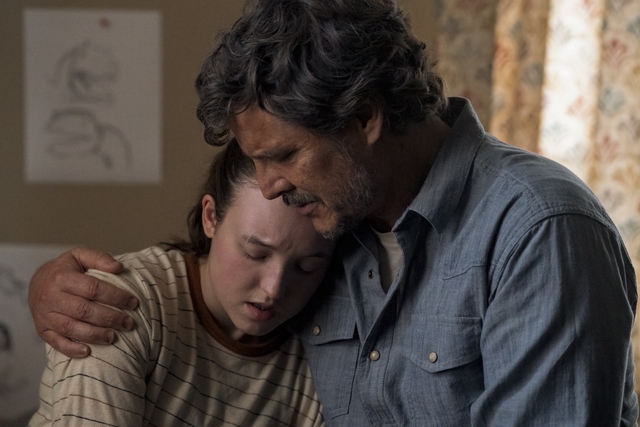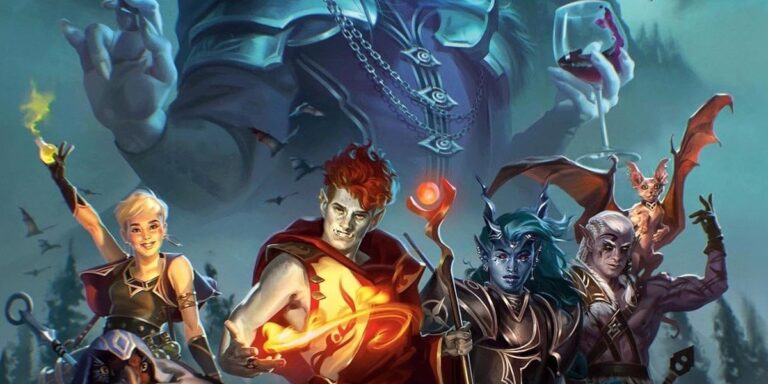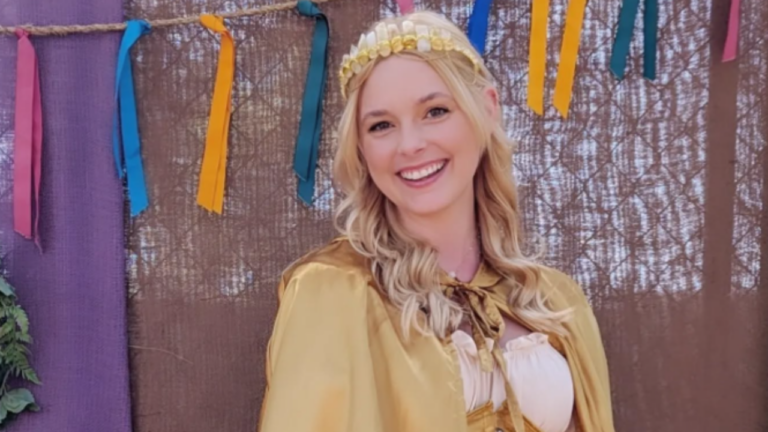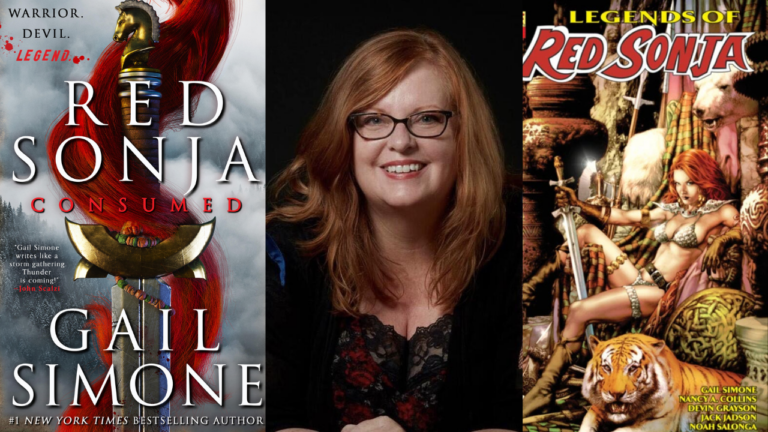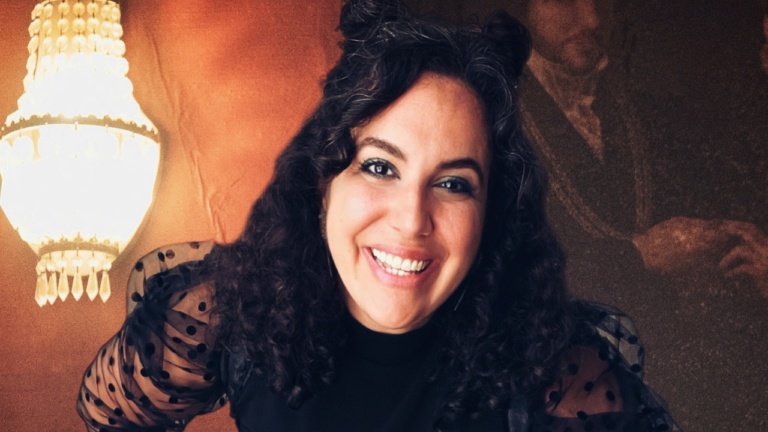At New York Comic Con, writer Max Brooks was a guest at the Penguin Random House booth. Jenna Wrenn spoke to Max about his upcoming release, Minecraft: The Village.
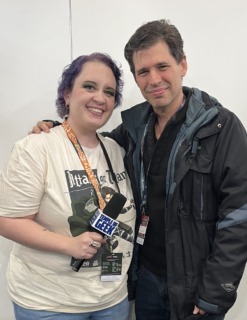
Max Brooks is the bestselling author of hits such as World War Z, The Zombie Survival Guide, Minecraft: The Island, and Minecraft: The Mountain. Minecraft: The Village was released on October 17, 2023.
Interview with Max Brooks at NYCC
Jenna Wrenn: You’re about to launch the third installment of your Minecraft series, Minecraft: The Village. What can you tell fans about it?
Max Brooks: Minecraft: The Village is the third and last logical installment of the Minecraft series. Minecraft: The Island is about life lessons on how to live with yourself. Minecraft: The Mountain, the second book, is how to live with another person. And the third one is how to live in a community. So it’s civics lessons through the lens of Minecraft.
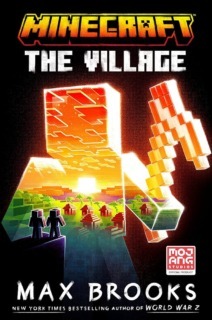
JW: How did you get into the world of Minecraft?
MB: My son was playing it when he was little and I was playing it with him and like oh my goodness, these are incredible life lessons in this game if you know where to look for it. So the only thing that’s missing is somebody to point them out to the kids playing them because it’s all error, patience, and planning, and failure.
So that when Mojang asked me “would you like to write the first official Minecraft book?” Hell yeah! I have a total take on it. And you’ve got to give Mojang credit, because when I pitched the whole thing like, “these are my questions, and every chapter is going to learn something,” they could have been like “no, we’re doing a simple book. We’re not going to possibly get controversial.” But they were like, “yeah, sure! Run with it.” And they didn’t mess with me. So thank you, Mojang.
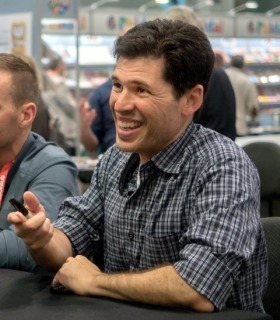
JW: Are you given any specific instructions on what the story should look like, or do you really have some creative freedom as the author?
MB: I’d say amazing creative freedom, and that’s never happened when I worked for somebody else because there’s always notes.
I don’t want to get into what it was like writing for the G.I. Joe comic book, but, you know, that was ultimately my problem, not Hasbro’s problem. Because at the end of the day, I’m working for a toy company trying to sell toys and using the story of G.I. Joe as a way to entice people to buy their products. So here I am coming in from left field being like, “Oh no, it’s got to be real war in Iraq. It can’t just be this 1980 stuff. It’s got to be serious and authentic.” And [Hasbro’s] like, “No, we’re going to get letters from people, from moms and then we’re not going to sell toys.” And that’s on me.
Mojang was very different. They were like, “You just run.” That was really nice as as the author and not having this really strict templates column. And now there was a huge problem, which was me trying to find the language, trying to find the voice because initially, the first draft was very good because I had a vision of Robinson Crusoe. So I went back to read Robinson Crusoe, and unfortunately, I let Daniel Defoe’s voice get stuck in my head because he tells it in a way that he’s been rescued. And you then you kind of get a sense that you met him years later in his house and you’re just sort of sitting there having a cup of tea and he’s talking about his adventures. But there’s no urgency. There’s no drama. And unfortunately, I let that bleed into the first draft.
So when Random House read the book, they were like “I think we’re in trouble.” And as I went through their notes, I said, “Are you talking about a page one rewrite?” So I had to go back and rewrite the whole book and nine more drafts later, I finally got it. It looks like we’re at a good spot here.
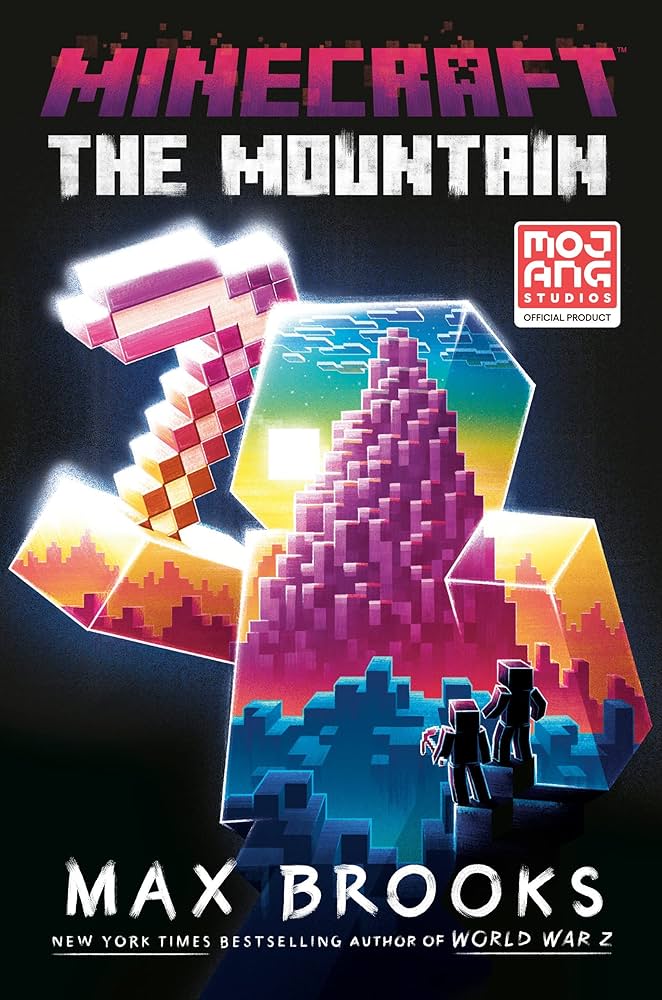
JW: How has working on the Minecraft series been different than anything else you’ve been part of in the past?
MB: Well, it’s different in many ways because everything that I’ve done in the past, I’ve had to research extensively. But the research has always been from various sources. So I’ve had to read books, I’ve had to talk to experts. Sometimes I’ve had to [do] what I did with Devolution. I went to the place where I put the village, the little community, to try to prove that my characters couldn’t just walk out. And I learned you can’t even walk in. I had to make those weapons because I had to see if people could make these weapons with no tools and learned that I could.
Whereas Minecraft, the research could only come from one source. So the amount of Minecraft I had to play is unforgivable if you’re doing anything but writing a book. And I did that for two reasons:
Number one: there’s only things you can discover from gameplay. There’s randomness in Minecraft. In this new one, I have a scene where they’re fighting a skeleton that’s shooting up into the darkness and Summer fires her bow with the flaming arrows into the darkness and Guy says to her, “That’s not illuminating this. The fire from the arrow doesn’t illuminate anything, so you’re not lighting anything up.” But she’s putting a light behind the skeleton, so when the skeleton passes in front of the fire, she knows which direction it’s going in so she can direct your fire. I never would have known that had that not happened to me. So that’s reason number one.
Reason number two is I approach everything as a player and I know how fans feel. I know how I feel when someone takes on an existing franchise and just lays things out and does not give it the due diligence and the effort they deserve. I will not say which franchise, but I know how it feels recently to be watching TV and to see what someone has done. I can see past the show into the writers room and I can see them going, “Well, it’s fine to go home. It’s fine, it’s an existing idea. People are going to show up and there’s already a fanbase built in and we don’t really have to try.” So I will never, ever let that happen if someone gives me the privilege of playing in their sandbox.
I am a fan of video games before jumping on board with the series. I was such a fan of video games when I was a kid. This is not the first video game book I’ve ever written. This is only the first one’s been published since the 1990s. I wrote a whole novel for myself based on Sid Meier’s Civilization. It was like a James Michener novel where it’s the diaries of like seven generations of governors of these colonies that were established. And I just wrote it for me and just stuck it in a drawer.
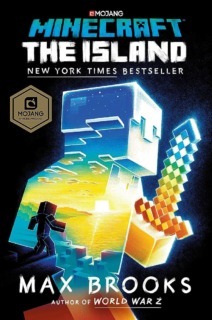
JW: When you write, do you keep a specific age demographic in mind?
MB: No, no, no, no. I will say with Minecraft, that’s the first series I’ve ever done because usually, I will write a book and wherever it lands and lands. But this is the first time I put something out there and then I’ve gotten feedback for the next two books. I didn’t know who was going to embrace it. I never do. I don’t know how to find [the audience]. That’s just who I am as a writer. I don’t know how to write for an audience. I never have.
But I wrote the first book and I was like, oh, it’s for a bunch of kids and their parents.” Every now and then, some young adults do love the book, but most of the time it’s like, “oh, I’m writing a children’s book.” But, it didn’t really affect what I was doing because even though I realized I was writing for kids, I will never write it down to kids. I like to elevate. I like to feel the way I felt as a kid when I only picked up on maybe every other word. And it made me want to know more.
I remember the first time I saw Star Wars. I didn’t understand what was going on. R2-D2 fell over and the audience loved him and I got that. I didn’t get anything else.
It kind of reminds me of what Thomas Jane said to me about Star Wars. He said to me when he saw it, he felt privileged; like his older brother was inviting him to hang out with their friends. So I like that. I like to just write for kids to invite them into a bigger world.

